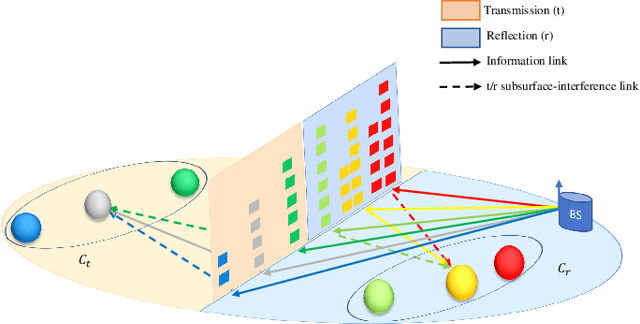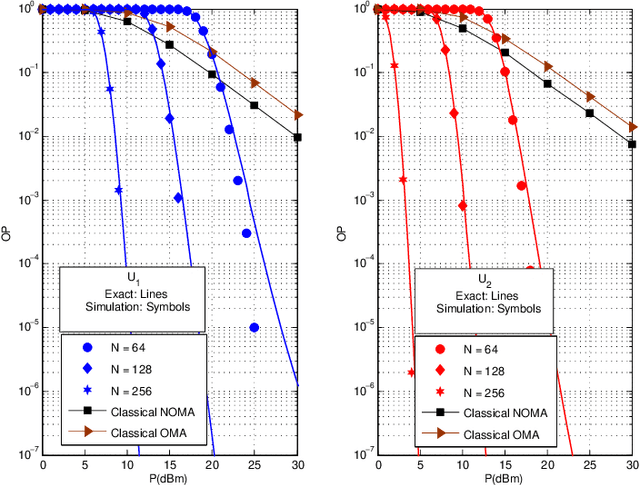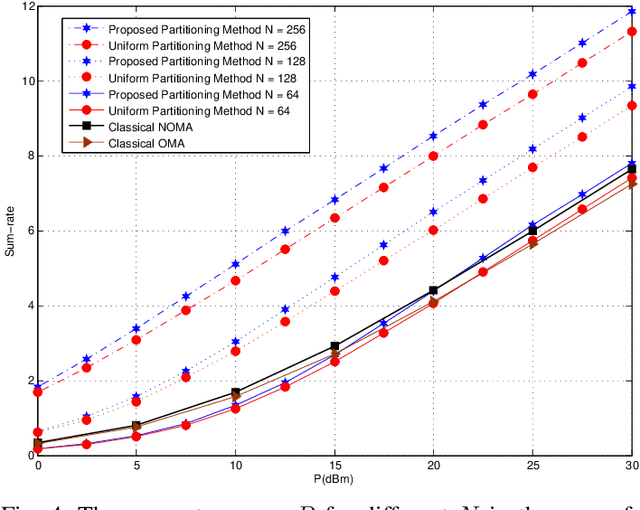Simultaneous Transmitting and ReflectingIntelligent Surfaces-Empowered NOMA Networks
Paper and Code
Oct 11, 2021



In this paper, we propose simultaneous transmitting and reflecting reconfigurable intelligent surface (STAR-RIS) assisted non-orthogonal multiple access (NOMA) networks. The considered STAR-RIS utilizes the mode switching (MS) protocol to serve multiple NOMA users located on both sides of the RIS surface. Based on the MS protocol, each STAR-RIS element can operate in full transmission or reflection mode. Within this perspective, we propose a novel algorithm to partition the STAR-RIS surface among the available users. This algorithm aims to determine the proper number of transmitting/reflecting elements needs to be assigned to each user in order to maximize the system sum-rate while guaranteeing the quality-of-service requirements for individual users. For the proposed system, we derive closed-form analytical expressions for the outage probability (OP) and its corresponding asymptotic behavior under different user deployments. Finally, Monte Carlo simulations are performed in order to verify the correctness of the theoretical analysis. It is shown that the proposed system outperforms the classical NOMA and orthogonal multiple access systems in terms of OP and sum-rate.
 Add to Chrome
Add to Chrome Add to Firefox
Add to Firefox Add to Edge
Add to Edge